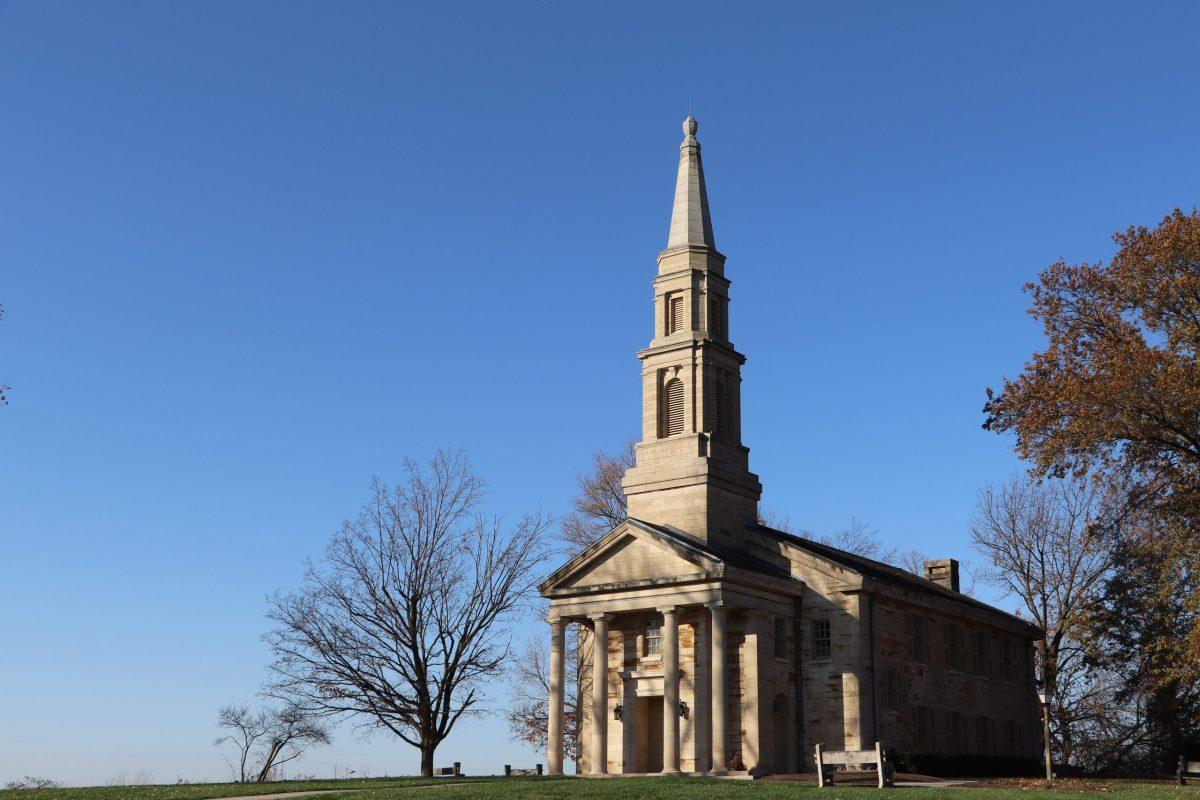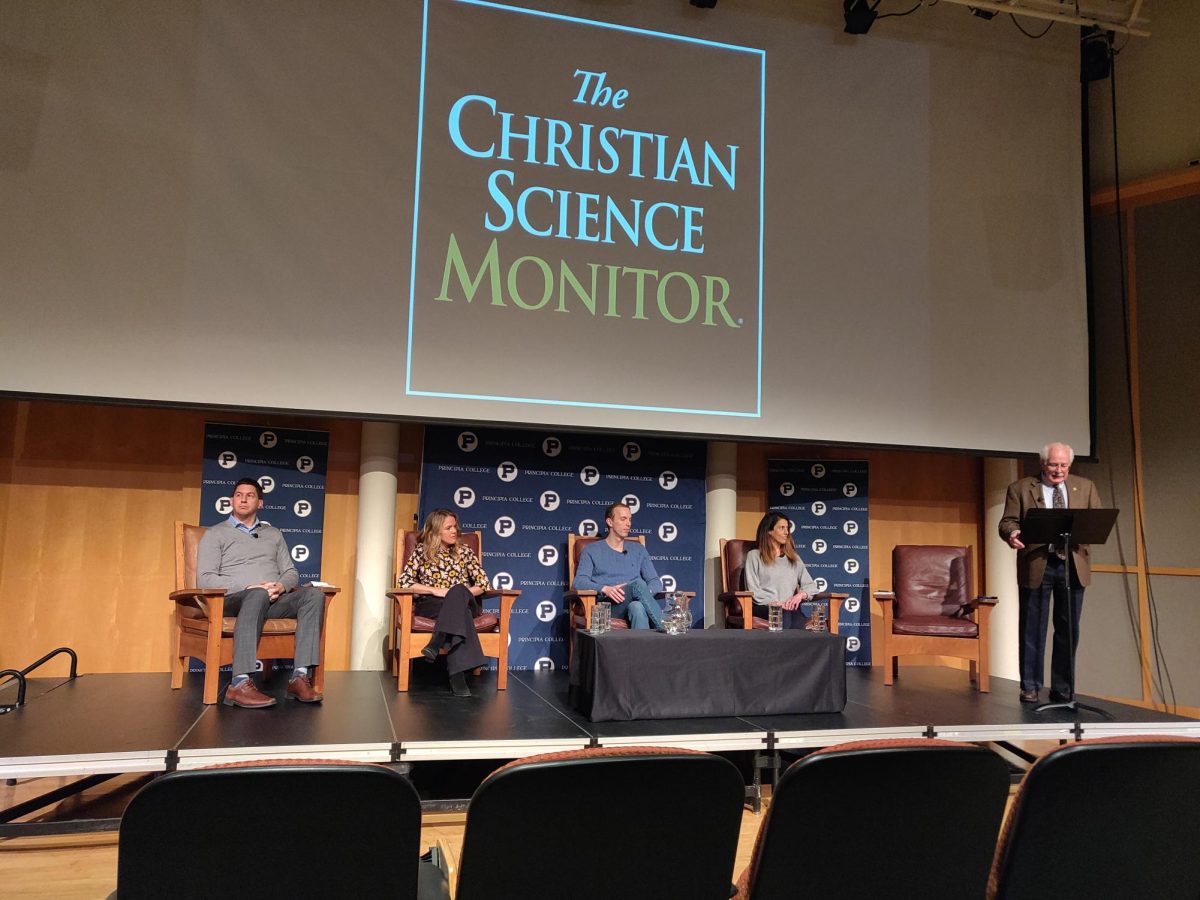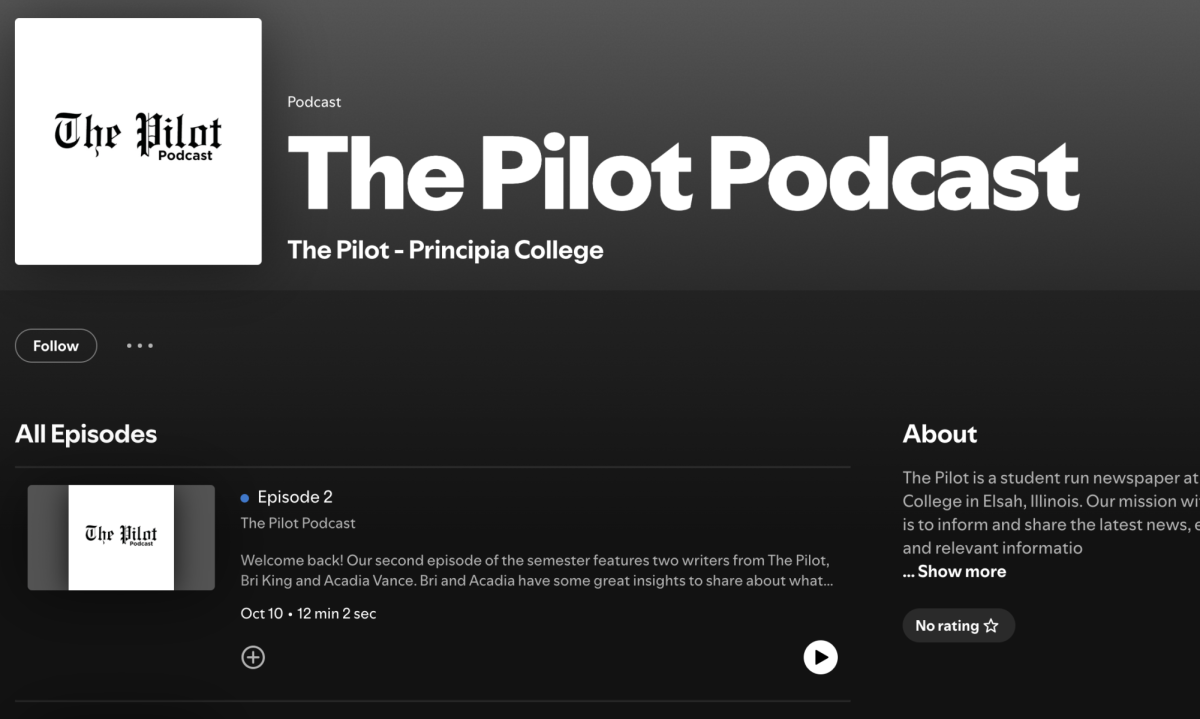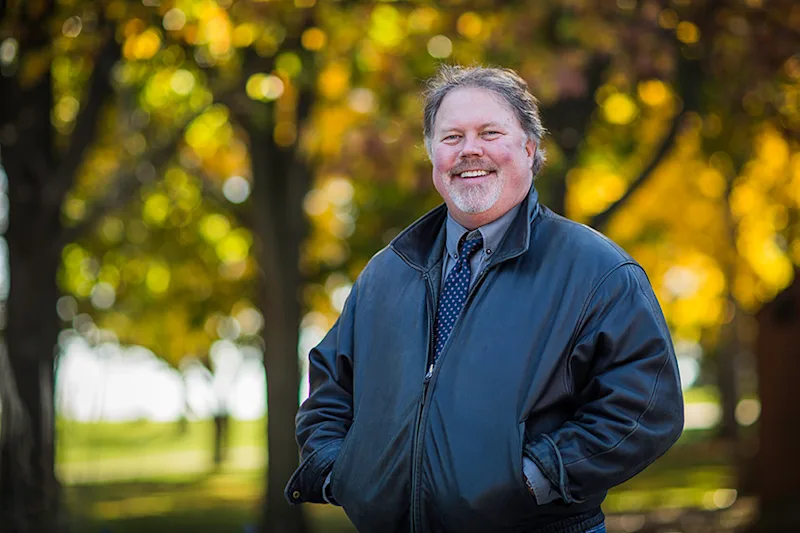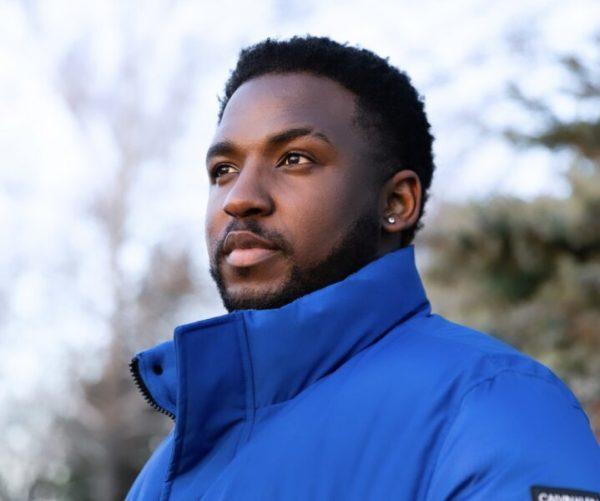When senior Chris Mwaura came to Principia College five years ago, he wanted to take a break from Christian Science and spirituality. Although he was raised a Christian Scientist, he felt like it was being shoved down his throat at the Principia Upper School.
“It felt forced,” he said, “when I came [to the college] I felt like I didn’t want anything to do with it,” he added.
This is what the Christian Science Organization (CSO) on campus is trying to stop.
“We are trying to make students feel welcome and free, especially those without a background in Christian Science,” said freshman Emmanuel Tekila, the president of the college’s CSO.
For Tekila, the role of CSO is to “spiritually and metaphysically support campus life.” Through avenues like Faith in Action, Sunday School, and quiet time, CSO hopes to reach as many students as possible and fulfill its purpose.
“CSO is like a guide to spiritual development,” Tekila said. “Whether or not you’re a Christian Scientist, we are here for you.”
This is especially important since Principia opened its doors to non-Christian Scientists. Students from all over the world are welcome to attend Principia and CSO is here and ready to support them. “It’s important that non-Christian Scientists know what Christian Science is,” Tekila noted. “CSO is one of the best avenues they can learn that.”
Tekila said that, as CSO president, his main goal for the year is to support the campus and its community. As an institution founded on the values of Christian Science, Principia is mandated to be true to itself. Even with the introduction of non-Christian Scientists, the college still strives to fulfill its purpose, as directed by its founder Mary Kimball Morgan.
In 1898, when Morgan expanded her homeschooling ventures and founded The Principia, she set out to deliver an education with a firm foundation in the teachings of Christian Science. On the precipice of these goals, Principia has set out to serve “the cause of Christian Science through appropriate channels open to it as an educational institution.” According to the college website, Principia does this with character-based education based on the teachings of Christian Science. One of the supporting pillars of the college’s core values is the Christian Science Organization.
CSO does not set out to convert people into Christian Scientists. Its main prerogative is to offer guidance and support and to foster a loving atmosphere on campus. “Religion is something very personal,” Mwaura says. Although he strayed from the religion, he gradually found himself back. “This time it was a personal choice,” he said. “The college didn’t force me to shove it down my throat, it is a decision that I made for myself and that’s why it’s so powerful.”
Kudzai Chiwara, a sophomore was admitted the first semester that the college was open to non-Christian Scientists. “I had never heard of it before,” he said. Although he was reminded many times during his admission process that the college is founded on Christian Science values, he never really knew what that meant.
Mwaura thinks that Principia needs to do a better job at introducing the values and religious roots of the college during the admission process. “Not many people know what Christian Science is,” he said, “it would be cool if they fully understood what that means before they land in a community that is so well defined.”
Tekila is also aware of this problem. Like Chiwara, he was admitted in 2021. He feels that more should be done during welcome week to raise awareness of what the religious anchoring of Principia means. “There should be workshops to educate new students on Christian Science,” he said.
These workshops could be designed as questions and answers sessions, where students could ask any questions they may have about the religious movement and its involvement on campus. These sessions could be headed by fellow students to allow for guards to be lowered.
The weekly quiet time sessions could also be used to raise awareness. Arnold Kalala, who serves as the Second Reader during Sunday services at the chapel, believes that the traditional design of Quiet Time is not good enough to capture students’ attention. “My RC even thought about using food to attract students,” Kalala said.
Quiet Time is designed as a weekly slot for the community to get together and share their lessons. But, as Kalala, who is also the metaphysical head for Rackham Court said, a remodel would do it well. “Instead of lessons, we can make it more interactive,” he said, “maybe writing quotes, or singing hymns, or even using it as a session to educate people on Christian Science.”
The main priority of CSO at Principia College is to provide a space for curious minds to learn more about Christian Science. “Come to Sunday school or attend a lecture,” Tekila said. “You never know what you might find.”
In an effort to make it easier for students to stumble into spaces where Christian Science is being discussed, CSO is working with other campus resources like the Wholeness Center. Tekila said that, through such initiatives, the campus is trying to ensure students feel supported spiritually and mentally.
Other avenues that CSO is trying to leverage is Faith In Action, a weekly event that happens on Fridays from 11 to noon. Although they are traditionally thought of as lecture sessions, Faith in Action sessions are expanding to include more hands-on activities. At a recent Faith in Action, students were invited to paint “Rocks of Love.”
Hosted by the Women’s Basketball team in Perry Lounge, students were invited to ‘“listen to readings from each player on what inspires them daily to live in love for themselves, each other, Principia, and God.” From the short readings, students painted rocks with motivational messages. The rocks were then placed around campus with the hope that they can ‘provide others with a warm thought whenever it is needed most.”
Like Mwaura said, spirituality and religion are a personal journey, one that has to come from within. “CSO is here for you when you decide to take the first step. We will be waiting,” Tekila said.


